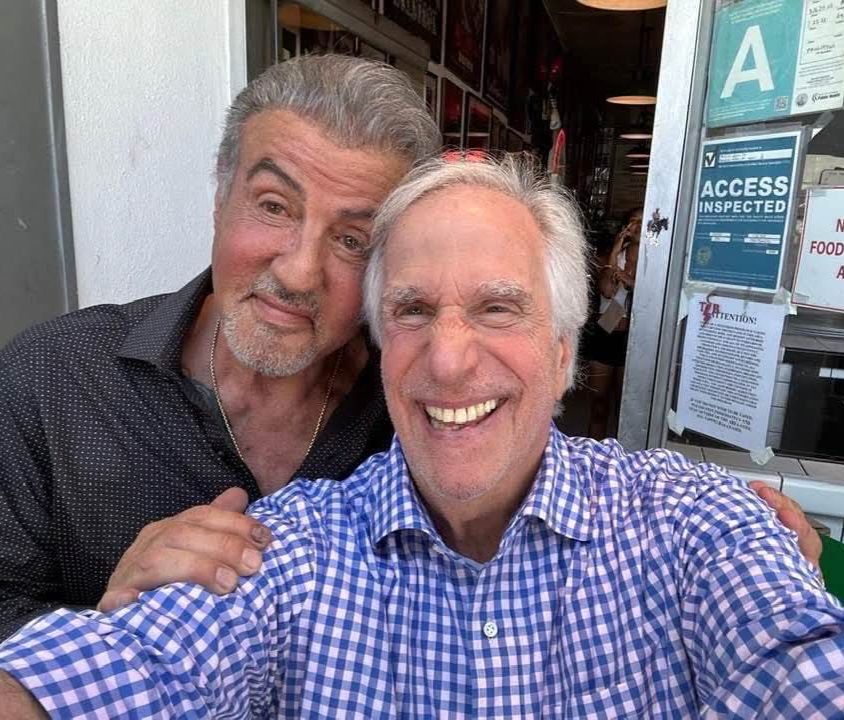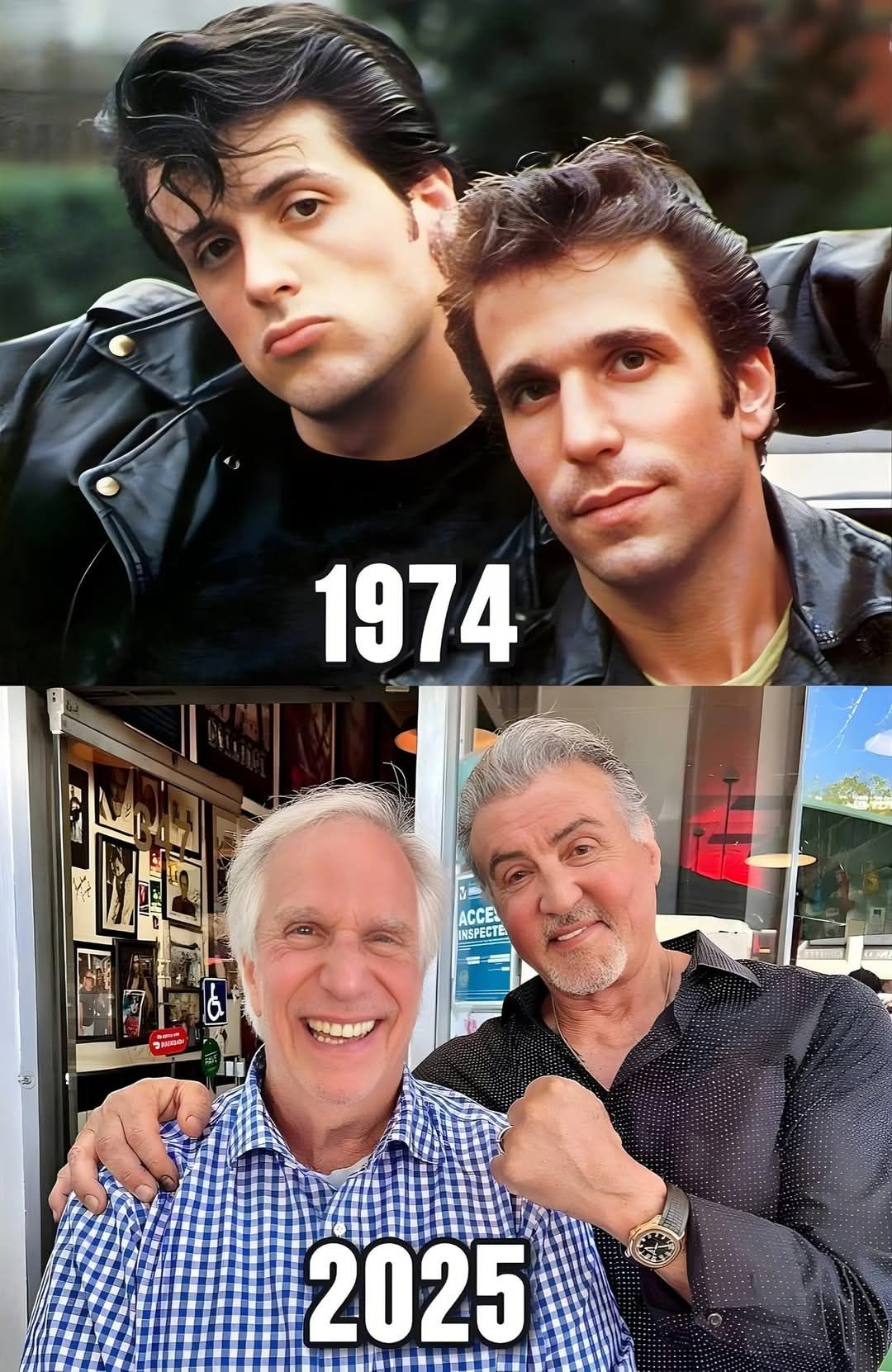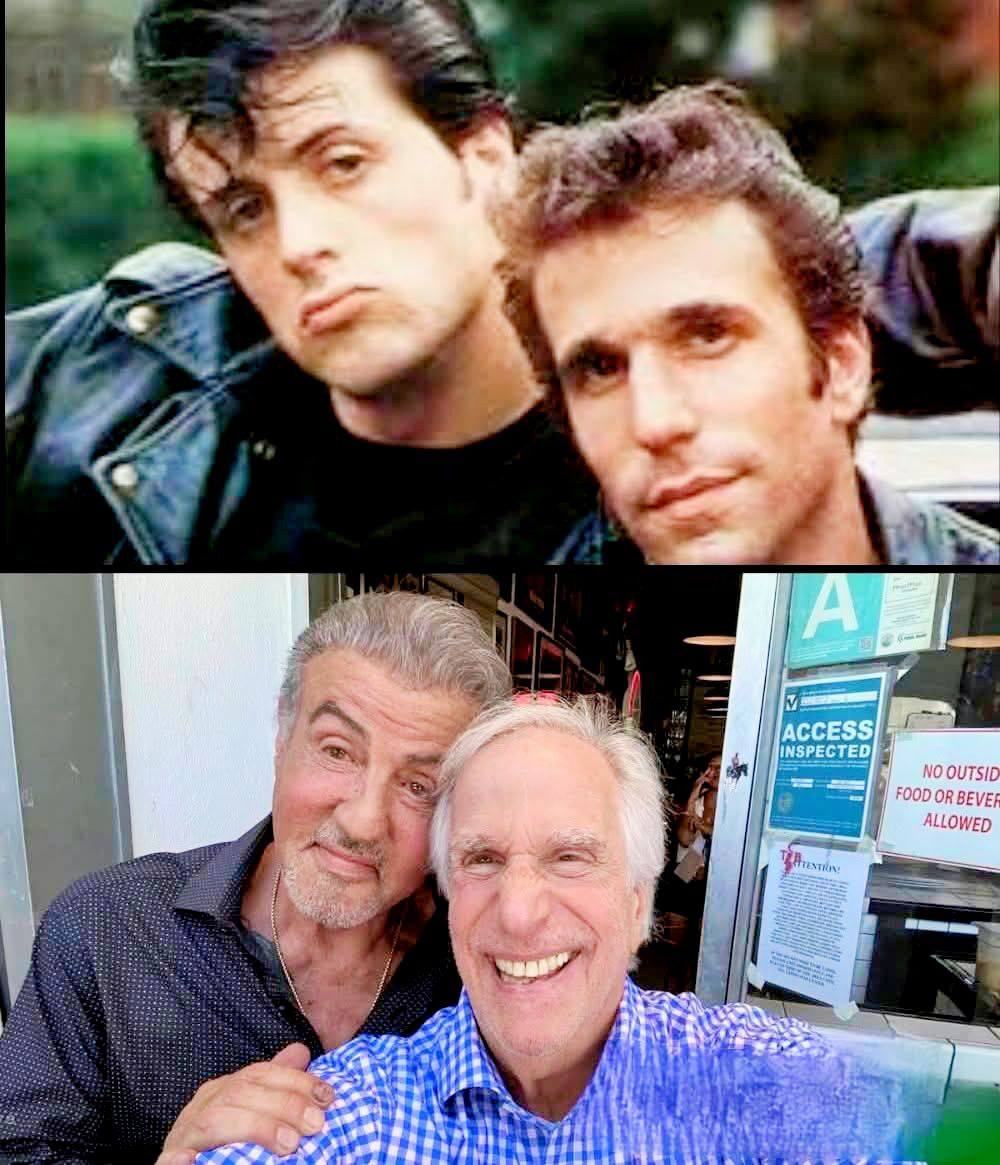🌟 The Man Who Believed in Rocky

In 1974, Sylvester Stallone was a struggling actor with a dream teetering on the edge of impossibility. Rejected by every studio, broke, and desperate, he clung to the script he had written himself—Rocky. But there was one condition: he had to play the lead. If not him, the story wouldn’t be told. Studios scoffed. Producers shrugged. Hollywood, it seemed, didn’t want Stallone—and didn’t believe in his story. And yet, fate has a way of intervening in the quietest moments. Enter Henry Winkler, the beloved star of Happy Days. Most people might have walked past a nervous, determined actor clutching a worn script. But Winkler didn’t. He read it. He sensed something raw, something real in Stallone’s voice, his eyes, his unwavering resolve. Leaning closer, Winkler whispered words that would alter the course of cinematic history: “This kid is real. He has something.” That quiet act of faith—simple yet profound—set everything in motion. Winkler’s support ensured that Stallone’s script reached the right people. Against all odds, with a shoestring budget, Rocky began production. Stallone starred. The world would soon witness not just a film, but a story of grit, hope, and perseverance come alive on screen.
And yet, fate has a way of intervening in the quietest moments. Enter Henry Winkler, the beloved star of Happy Days. Most people might have walked past a nervous, determined actor clutching a worn script. But Winkler didn’t. He read it. He sensed something raw, something real in Stallone’s voice, his eyes, his unwavering resolve. Leaning closer, Winkler whispered words that would alter the course of cinematic history: “This kid is real. He has something.” That quiet act of faith—simple yet profound—set everything in motion. Winkler’s support ensured that Stallone’s script reached the right people. Against all odds, with a shoestring budget, Rocky began production. Stallone starred. The world would soon witness not just a film, but a story of grit, hope, and perseverance come alive on screen. When Rocky premiered, it was a phenomenon. The underdog tale resonated with audiences everywhere, earning three Academy Awards and cementing Stallone as one of Hollywood’s most iconic figures. Years later, reflecting on that pivotal moment, Stallone said, “Henry didn’t just encourage me. He acted. Without him, Rocky wouldn’t exist.” The story of Rocky isn’t just about boxing—it’s about belief. About how sometimes, all it takes is one person to see your fire when the world sees only struggle. Henry Winkler’s faith gave Stallone the chance to prove himself, and in doing so, helped create a legend that continues to inspire generations.
When Rocky premiered, it was a phenomenon. The underdog tale resonated with audiences everywhere, earning three Academy Awards and cementing Stallone as one of Hollywood’s most iconic figures. Years later, reflecting on that pivotal moment, Stallone said, “Henry didn’t just encourage me. He acted. Without him, Rocky wouldn’t exist.” The story of Rocky isn’t just about boxing—it’s about belief. About how sometimes, all it takes is one person to see your fire when the world sees only struggle. Henry Winkler’s faith gave Stallone the chance to prove himself, and in doing so, helped create a legend that continues to inspire generations. In Hollywood and in life, talent alone isn’t always enough. It is the belief of others—the mentors, the encouragers, the quiet champions—who often turn struggle into triumph. And in 1976, in a small studio with a worn-out script, that belief became history. Sometimes, it’s not the fighter in the ring who makes the difference—it’s the believer standing outside it, quietly changing everything.
In Hollywood and in life, talent alone isn’t always enough. It is the belief of others—the mentors, the encouragers, the quiet champions—who often turn struggle into triumph. And in 1976, in a small studio with a worn-out script, that belief became history. Sometimes, it’s not the fighter in the ring who makes the difference—it’s the believer standing outside it, quietly changing everything.











